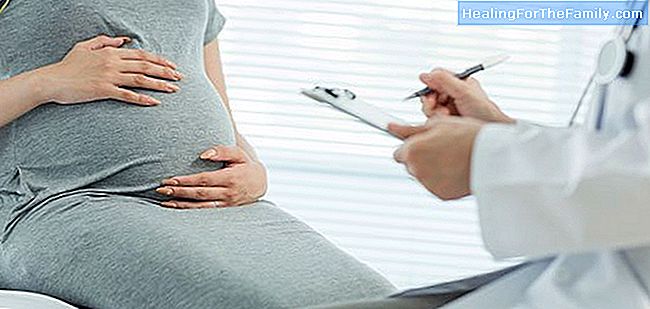10 Causes of high-risk pregnancy
Pregnancy is one of the most important moments in a woman's life. In general, although waiting for a child involves physical and psychological changes in the mother, some factors may entail a risk to her health and that of the baby. It is considered that a pregnancy is high risk when there are medic
Pregnancy is one of the most important moments in a woman's life. In general, although waiting for a child involves physical and psychological changes in the mother, some factors may entail a risk to her health and that of the baby. It is considered that a pregnancy is high risk
when there are medical, gynecological or social factors that increase the chances of mortality during pregnancy and childbirth. Causes of a high-risk pregnancy The causes that cause a high-risk pregnancy are very variable and can occur before conception or during the gestation period. In general, only
10% of pregnancies

are considered high risk. According to Dr. Víctor M. Meneses of the Mexican College of Gynecology and Obstetrics, the causes range from congenital anomalies
and social problems to the age of the mother. In general, the ten most common causes of this type of pregnancy are: - Anemia - Hepatitis
- Pregestational and gestational diabetes
- Toxoplasmosis
- Morbid obesity
- Eclampsia and preeclampsia
- Threat of premature delivery
- Alcoholism, smoking and drug addiction
- Maternal age under 18 or above 40 years
- Multiple pregnancies
Diagnosis of a high-risk pregnancy
Pregnancies involving a
serious risk to the health
of the mother and the baby can be detected in two ways First, when the pregnant woman comes to the first check-up, the gynecologist will do medical tests and questions to discover if there is a high risk in pregnancy. Second, a high-risk pregnancy can be diagnosed if a medical problem appears, such as bleeding, abnormal pain, hypertension, or gestational diabetes. It will also be very important for the diagnosis the mother's medical history
and her background. According to Dr. Meneses, among the usual tests for detecting a high-risk pregnancy are blood tests
, blood count, ultrasound, glucose levels, urine test (urine culture) and ultrasound. What to do when you have a high-risk pregnancyThe first thing is to follow the medical guidelines that ensure good health for pregnancy. Both the woman and the baby must undergo a more complete control, to avoid further complications. The treatment will depend on the reason why the pregnancy was considered by the doctor as high risk. In general, the doctor will make adjustments in your lifestyle, in your daily tasks, in your diet, etc. There will be cases in which the use of medications will be needed.
The best way to carry a risk pregnancy in a healthy way is to eat a balanced diet, exercise in a controlled and regular way, and avoid the use of tobacco and alcohol.
Patricia García
. Collaborator of GuiaInfantil.com












